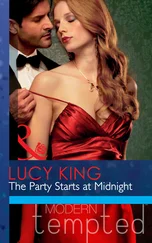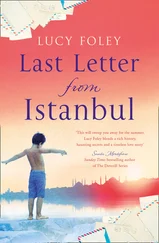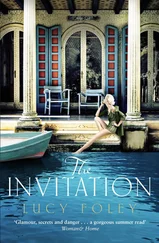So I find myself, now, returning to three days ago, the evening they all arrived. My first, animal impressions.
The Highland Dinner on the first night of the stay is one of the promises made by the brochure. But every time we host it, I think the guests would be quite happy to do without. It always seems to take on the atmosphere of an enforced occasion, like a state dinner. I’m sure it’s just another means of extracting money from them. The mark-up on the food, even accounting for the fact that the ‘best local ingredients’ are used, is huge. I’ve also wondered if it’s a way of keeping the community onside, because local lads and lasses are employed as the waiting staff, and all the ingredients are bought from nearby suppliers; save the venison, which comes from here.
I have read the headlines from when the boss first bought the place – from the family who had owned it for generations – articles complaining about the ‘elitist prices’, the ‘barring of local people from their own land’ – there’s a right to roam in the Highlands, which the old laird had always upheld, but the boss had fences and threatening signs put up. He claims they are to deter poachers but, funny thing, apparently that wasn’t so much of a problem under the previous owner. Maybe the poachers hadn’t got themselves organised, weaponised, hadn’t realised the healthy demand for venison and mounted stags’ heads. But I think there might be another angle to the deer killings that happen now. In the vein of a lesson taught, something taken back.
Once, in our nearest shop in Kinlochlaggan (still over an hour away), I happened to tell the shopkeeper where it was that I worked. ‘You seem nice enough, lass,’ she said, ‘but it’s a nasty place. Foreign money.’ (By which she meant, I presume, the boss’s Englishness, and the fact that the guests often come up from England, or from further afield.) ‘One of these days,’ she told me, ‘they’ll pay the proper price for keeping people from what’s theirs.’ I remembered then the theory I’d heard about the Old Lodge, the one I don’t tell guests: that the fire hadn’t been started by the gamekeeper, but by a disgruntled local, slighted by the laird.
If the Highland Dinner is meant to stem this ill will towards the place, I’m not sure it has worked. If anything, the waiting staff probably return home with tales of the guests’ bad behaviour. I remember a stag party where a drunk – but not that drunk – best man groped a very young waitress as she bent to retrieve a dropped napkin. Guests have passed out in their plates, succumbing to too much of the Glencorrin single malt. Some have vomited at the table, in full view of the staff.
The London group of guests would be better behaved than the stag party, I was sure. There was a baby among them, so surely that meant something, even if the parents weren’t joining us (the mother had asked for their food to be brought to them in their cabin). That left seven of them. The dark-haired man, the tall blonde. Julien and Miranda. A perfectly matched pair, the most beautiful, even the poshest names of the lot. Then there was the thin, sleek, auburn-haired man with the architect’s glasses – Nick – and his American boyfriend, Bo. The third couple: Mark, and Emma. He might almost have been good-looking, but his eyes were too close together, like a small predator’s, and his top half was disproportionately heavy, lending him the unnatural appearance of an action figure. I found myself thinking she was like a budget version of the taller blonde; dark hair at the roots, a roll of flesh showing at the top of her jeans where her top had ridden up. I was surprised at myself. I’m not, as a rule, a judgemental person. But even if you don’t have much interaction with other human beings – as I do not – it turns out that the instinct to judge one another, that basic human trait, does not leave us. And the resemblance was un-ignorable. Her hair was dyed the same shade, the clothes were of a type, and she’d even made up her eyes in the same way, little flecks of black at the corners. While they made her friend’s eyes look large and catlike, they only served to emphasise the smallness of her own.
Then there was the last one, Katie. The odd one out. I almost missed her at first. She was standing so still, so quiet, in the shadows at the corner of the room – almost as though she wanted to disappear into them. She didn’t match the others, somehow. Her skin was sallow, and there were large purple shadows beneath her eyes. Her clothes were too formal, as though she were going on a business trip and had turned up here by mistake.
Normally, though I have to learn the names, I prefer to think of the people who stay here as simply the ‘guests’: guest 1, guest 2, et cetera. I’d prefer not to think of them as individual people with lives outside this place. Perhaps this sounds odd. I suppose I could argue it’s a survival tactic. Don’t get involved in their lives. Don’t let their happiness – or otherwise – touch you. Don’t compare yourself to their wholeness, those couples who come for a romantic retreat, the happy families.
The last twenty-four hours has meant a closer acquaintance with this group – a forced intimacy that I could well have done without.
But I suppose, if I’m honest, even from the beginning I was curious about them. Perhaps because they were roughly the same age as me: early-to mid-thirties, at a guess. I could have been like them, if I had found a high-paying job in the city, like some friends did after university. This is what you could have had, it felt like the universe was saying to me. This is where you could have been, what you could have been doing, at the loneliest time of the year (because New Year’s Eve is, isn’t it?).
I might have been envious. And yet I didn’t feel it. Because I couldn’t put my finger on it, but there was an unease, a discontent, that seemed to surround them. Even as they laughed and jostled and teased one another, I could sense something underneath it – something off. They seemed almost at times like actors, I thought, making a great show of what a wonderful time they were having. They laughed a little too hard. They drank a great deal too much. And at the same time, despite all this evidence of merriment, they seemed to watch each other. Perhaps it’s hindsight, making this impression seem like more than it was. I suppose there are probably tensions in most groups of friends. But I was struck by the thought that they did not seem completely comfortable in one another’s company. Which was odd, as they’d told me right at the beginning that they were very old friends. But that’s the thing about old friends, isn’t it? Sometimes they don’t even realise that they no longer have anything in common. That maybe they don’t even like each other any more.
The other guests, the Icelandic couple, walked in just as the starter was being served – ‘locally-caught salmon with wild herbs’ – to a frisson of hostility from the others.
Iain had booked them in. I’d been on one of my rare trips to the local shop, so he’d had to take the call. He could see that the bunkhouse was free on the system, he said, and he’d checked with the boss, who’d okayed it all. I was annoyed he hadn’t written their names down in the book: if I had known, I wouldn’t have promised the other group they’d have the run of the place.
I wasn’t sure what sort of behaviour to expect from these two. They weren’t the usual, well-heeled sort. Both had wind burned complexions, the roughened look of people who spend a lot of time in harsher elements. The man had very pale blue eyes, like a wolf’s, and stringy blond hair tied back with a leather thong. The woman had a double-ended stud passing through the septum of her nose and a tangled dark ponytail.
Читать дальше











